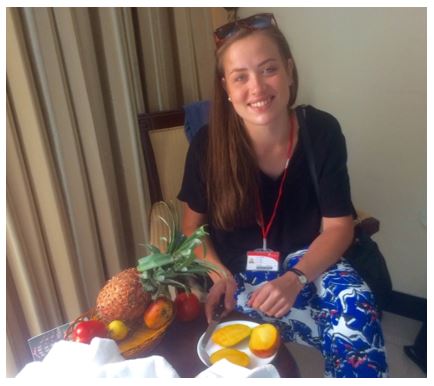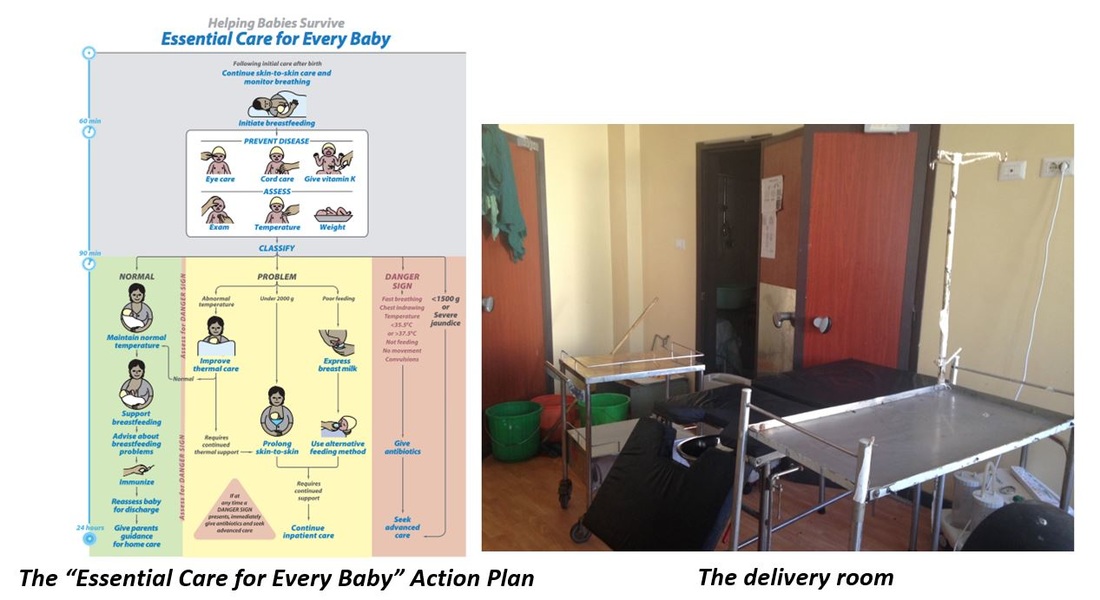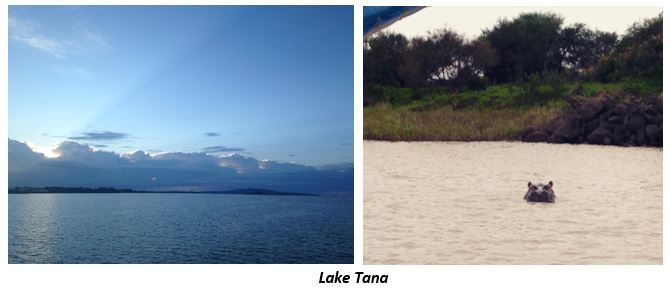travel bursary reports
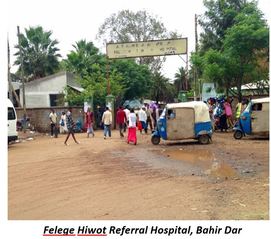 Despite Bahir Dar only having a population of 390,000 people, the hospital itself serves between seven and eight million people yet only has 400 beds. As a result, the hospital is extremely overcrowded and the staff are incredibly busy. There are at least 15 deliveries each day at FHRH, most of which are emergency cases. As the majority of people in the Amhara region of Ethiopia live in the rural areas, the women tend to give birth at home with the help of a “traditional birth attendant”. If a problem arises, the woman can be taken to a local health centre but that only offers very minimal care so emergency cases must be transferred to Felege. Sadly this process of travelling from home to the health centre, contacting an ambulance and then finally arriving at the maternity hospital can take a considerable amount of time meaning that sometimes either the mother, or more often the baby, are critically ill when they arrive. Worldwide, the leading causes of neonatal death (death within the first 28 days of life) are due to the following: · Pre-term birth (28%) · Severe infections (26%) · Neonatal asphyxia (23%) · Neonatal tetanus (7%) 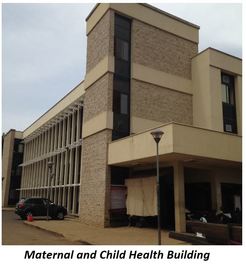 The “Essential Care for Every Baby” (ECEB) is a programme based on recommendations from the World Health Organisation (WHO) Pregnancy, Childbirth, Postpartum and Newborn Care guidelines (2006), the WHO Essential Newborn Care Course (2010) and other WHO guidelines. Essential Newborn Care is defined as the care of babies after birth by health workers and mothers (American Academy of Pediatrics). The ECEB programme aims to promote newborn health and increase survival through the use of workbooks and training sessions. The ECEB Action Plan details essential care to take place within the first 90 minutes of life. During the five weeks, I spent most of my time in the delivery room of the maternity hospital – a small room with three beds, often all occupied at once, and a table in the corner for providing neonatal care and resuscitation but with very limited equipment. My job was to observe the delivery of the baby and then focus on the care given within the first 90 minutes of life compared to the ECEB Action Plan. Following an initial observation period, I reviewed the data and wrote a report for the labour ward staff at FHRH detailing a breakdown of the deliveries I had observed, the tasks done well, areas for improvement and any additional observations. I then discussed my findings with my supervisor (an Obstetrician/Gynaecologist at FHRH) the head midwife, the Medical Director and the Chief Executive. The main areas to be improved were regarding hand hygiene both before and after delivery of the baby, temperature measurement and weighing of the babies. I then presented the report to the midwives and distributed various posters, booklets and teaching materials to reinforce the importance of delivering essential newborn care for every baby. During the five weeks, I spent most of my time in the delivery room of the maternity hospital – a small room with three beds, often all occupied at once, and a table in the corner for providing neonatal care and resuscitation but with very limited equipment. My job was to observe the delivery of the baby and then focus on the care given within the first 90 minutes of life compared to the ECEB Action Plan. Following an initial observation period, I reviewed the data and wrote a report for the labour ward staff at FHRH detailing a breakdown of the deliveries I had observed, the tasks done well, areas for improvement and any additional observations. I then discussed my findings with my supervisor (an Obstetrician/Gynaecologist at FHRH) the head midwife, the Medical Director and the Chief Executive. The main areas to be improved were regarding hand hygiene both before and after delivery of the baby, temperature measurement and weighing of the babies. I then presented the report to the midwives and distributed various posters, booklets and teaching materials to reinforce the importance of delivering essential newborn care for every baby. While in Bahir Dar, I was also able to spend some time at The Grace Centre (http://www.gracecenterfoundation.com/), a Christian centre which supports families by providing day care facilities for single parents, where children are fed and are able to play in a safe environment while their parent is at work, as well as full-time care for around 30 children. I was deeply encouraged to see the work of Amy and all her team members as well as having an insight into the huge number of people who are helped and supported by the foundation. "Without organisations such as yourselves, students like me would not be able to travel and participate in projects abroad such as this" When I wasn’t at the hospital or the orphanage, I was able to explore some of the sites around town. Bahir Dar is home to the third biggest lake in Africa, Lake Tana, where you can often see hippos, and visited several island monasteries and the local market. I thoroughly enjoyed my time in Ethiopia and, despite the various challenges I faced, I found the experience incredibly rewarding. Being in such a different environment compared to life in the UK, especially in the hospital, did take some adjustment, but the care delivered by all of the staff at FHRH was outstanding. I have now returned to University in Aberdeen to resume studying medicine. In two years time I will graduate, as terrifying as that seems, and I really hope that one day I will be able to return to Felege Hospital again. Thank you very much for your extremely generous donation that made this trip possible. Without organisations such as yourselves, students like me would not be able to travel and participate in projects abroad such as this, so I am incredibly grateful.
0 Comments
Your comment will be posted after it is approved.
Leave a Reply. |
Reports
Read our reports from those we have supported through bursaries! Archives
August 2023
Categories
All
|
